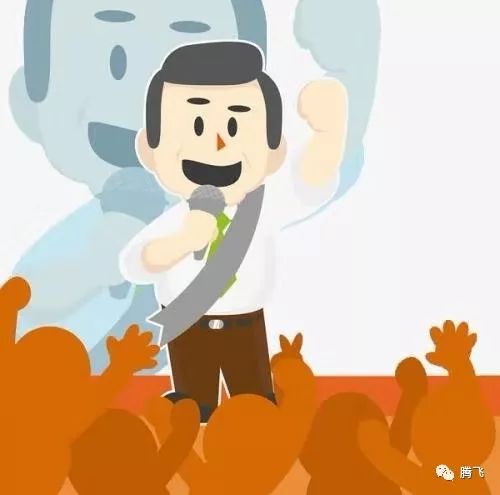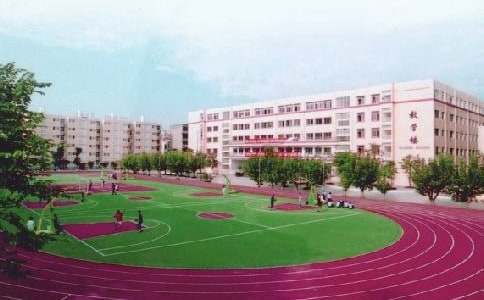国际英语资讯:Yearender: Syria aspires for political solution to civil war after IS col

DAMASCUS, Dec. 28 -- The major achievement for Syria in 2024 was perhaps the defeat of the Islamic State (IS), a development that nourishes hopes and paves the way for a possible political solution to the nearly seven-year-old civil war in 2024, after several setbacks in the course of negotiations.
FALL OF IS
On Oct. 17, the Kurdish-led Syrian Democratic Forces (SDF), backed by the U.S., fully captured the northern city of Raqqa, almost three years after the terrorist group declared the city as the capital of its self-styled caliphate in Syria.
It took the SDF four months to defeat the IS in Raqqa, with the heavy backing of the U.S.-led anti-terror coalition.
According to the Syrian Observatory for Human Rights monitor group, 3,250 people, including 1,130 civilians, were killed during the four-month intense battles in Raqqa.
The London-based watchdog also said 80 percent of Raqqa was destroyed owing to the heavy bombing by both the SDF and the U.S.-led coalition.
In tandem with the SDF's attacks on Raqqa, the Russian-backed Syrian army was making strides in the battles against IS militants in the eastern province of Deir al-Zour, which boasts key oil and gas fields and was thus deemed as the economic capital of the IS.
On Nov. 3, the Syrian army declared the liberation of the entire city of Deir al-Zour from the IS, after months of battles in the capital city that bears the same name with the province.
The army later defeated the IS in two key strongholds in the countryside of Deir al-Zour Province, namely the cities of al-Mayadeen and al-Bukamal along the Iraqi border.
To reach Deir al-Zour, the Syrian government forces with the backing of pro-government fighters, and the Lebanese group of Hezbollah launched a wide-scale military offensive in the Syrian Desert in the remote eastern countryside of Homs Province in central Syria.
The campaign started in May and initially focused on eliminating rebel threats along the highway from the capital Damascus to the border with Iraq.
Its first goal was to capture both the highway and the al-Tanf border crossing, thus securing the Damascus countryside from a potential rebel attack.
Later, multiple other fronts were opened throughout the desert, in addition to the anti-IS operation "Grand Dawn" which aimed to reopen the Damascus-Palmyra highway and prepare for an offensive toward Deir al-Zour.
Along the way in the desert toward Deir al-Zour, the army recaptured Palmyra and other key IS strongholds.
During the offensive in the desert, key gas and oil plants, including the Hayyan gas fields, the largest production facility of gas feeding electricity stations in central and southern Syria, were recaptured from the IS.
The series of operations stripped the IS of its political and economic strongholds, so that the eradication of its remnants in the countryside of Deir al-Zour is just a matter of time.
TENSION BETWEEN GOV'T AND KURDS
In the meantime, the Kurdish-led SDF was also attacking the IS in the northern countryside of Deir al-Zour, yet with different aims.
The Syrian army's aim was to get all the areas captured by the IS back to the government control, while the U.S.-backed SDF was to consolidate its presence to realize its old dream of establishing an autonomy in Syria.
There was no military or political confrontation between them at first.
The Kurdish-led groups, however, repeatedly accused the government forces of targeting their areas, while the Syrian government refused to acknowledge the liberation of Raqqa, saying the city was occupied by the U.S. and Kurdish forces.
Syrian officials repeatedly said the government will regain all lost areas, including those under the Kurdish control, while Foreign Minister Walid al-Moallem said Kurdish autonomy was not non-negotiable.
On Dec. 20, Deputy Foreign Minister Faisal Mekdad described the SDF as "new Daesh (IS)," saying the SDF should be a part of Syria.
The sharp comments came as the government perceives the Kurdish activities as separatist, despite the repeated remarks from the Kurds that they were not seeking independence.
PROSPECT OF POLITICAL SETTLEMENT
While the war on terror was successful in 2024, the wheels of political solution were moving slowly, as no concrete ground has been agreed on despite rounds of intra-Syrian talks in Geneva.
The latest round of talks ended earlier this month, where the opposition renewed its stance that President Bashar al-Assad should leave as a prelude to the political solution, while the government maintained that no preconditions should be set ahead of the talks, and tried to give priority to counter-terrorism.
On Dec. 14, UN envoy Staffan de Mistura warned against the repercussion of the failure of the eighth round of the Geneva talks.
He said two weeks of talks failed to yield the intended results despite great efforts, which he described as a "missed golden opportunity."
In parallel with the Geneva talks were several rounds of talks in Astana, which were supported by Russia, Turkey and Iran. The Astana talks achieved the de-escalation zones deal for the cease-fire in four major hotspots in Syria.
The first zone includes parts of the northwestern province of Idlib, as well as parts of the countryside of Latakia Province in northwestern Syria, western areas of Aleppo Province in northern Syria and northern areas of Hama Province in central Syria.
The second zone includes Eastern Ghouta countryside of the capital Damascus, while the third one includes the towns of Rastan and Talbiseh in the northern countryside of Homs Province in central Syria.
The fourth zone includes areas in the southern provinces of Daraa and Qunaitera.
Eyes are now shifted toward the upcoming talks in Sochi brokered by Russia, Iran, and Turkey, particularly after the visit of Assad to Sochi last month and the visit of Putin to Syria this month.
These visits were seen by analysts as paving a strong way for the Sochi talks, which are scheduled for early next year.
On Dec. 18, Assad said his administration welcomes any role of the UN in possible Syrian elections as long as it respects the Syrian sovereignty, according to the Syrian presidential media office.
The elections and constitution in Syria are expected to be discussed in the upcoming talks in Sochi.
Assad said if there is a constitutional amendment, there will be elections based on it.
After the most dangerous terror group Syria has ever known is collapsing in 2024, the best hope in 2024 should be that a better agreement could be reached to pave a stronger way for the final political solution.
DAMASCUS, Dec. 28 -- The major achievement for Syria in 2024 was perhaps the defeat of the Islamic State (IS), a development that nourishes hopes and paves the way for a possible political solution to the nearly seven-year-old civil war in 2024, after several setbacks in the course of negotiations.
FALL OF IS
On Oct. 17, the Kurdish-led Syrian Democratic Forces (SDF), backed by the U.S., fully captured the northern city of Raqqa, almost three years after the terrorist group declared the city as the capital of its self-styled caliphate in Syria.
It took the SDF four months to defeat the IS in Raqqa, with the heavy backing of the U.S.-led anti-terror coalition.
According to the Syrian Observatory for Human Rights monitor group, 3,250 people, including 1,130 civilians, were killed during the four-month intense battles in Raqqa.
The London-based watchdog also said 80 percent of Raqqa was destroyed owing to the heavy bombing by both the SDF and the U.S.-led coalition.
In tandem with the SDF's attacks on Raqqa, the Russian-backed Syrian army was making strides in the battles against IS militants in the eastern province of Deir al-Zour, which boasts key oil and gas fields and was thus deemed as the economic capital of the IS.
On Nov. 3, the Syrian army declared the liberation of the entire city of Deir al-Zour from the IS, after months of battles in the capital city that bears the same name with the province.
The army later defeated the IS in two key strongholds in the countryside of Deir al-Zour Province, namely the cities of al-Mayadeen and al-Bukamal along the Iraqi border.
To reach Deir al-Zour, the Syrian government forces with the backing of pro-government fighters, and the Lebanese group of Hezbollah launched a wide-scale military offensive in the Syrian Desert in the remote eastern countryside of Homs Province in central Syria.
The campaign started in May and initially focused on eliminating rebel threats along the highway from the capital Damascus to the border with Iraq.
Its first goal was to capture both the highway and the al-Tanf border crossing, thus securing the Damascus countryside from a potential rebel attack.
Later, multiple other fronts were opened throughout the desert, in addition to the anti-IS operation "Grand Dawn" which aimed to reopen the Damascus-Palmyra highway and prepare for an offensive toward Deir al-Zour.
Along the way in the desert toward Deir al-Zour, the army recaptured Palmyra and other key IS strongholds.
During the offensive in the desert, key gas and oil plants, including the Hayyan gas fields, the largest production facility of gas feeding electricity stations in central and southern Syria, were recaptured from the IS.
The series of operations stripped the IS of its political and economic strongholds, so that the eradication of its remnants in the countryside of Deir al-Zour is just a matter of time.
TENSION BETWEEN GOV'T AND KURDS
In the meantime, the Kurdish-led SDF was also attacking the IS in the northern countryside of Deir al-Zour, yet with different aims.
The Syrian army's aim was to get all the areas captured by the IS back to the government control, while the U.S.-backed SDF was to consolidate its presence to realize its old dream of establishing an autonomy in Syria.
There was no military or political confrontation between them at first.
The Kurdish-led groups, however, repeatedly accused the government forces of targeting their areas, while the Syrian government refused to acknowledge the liberation of Raqqa, saying the city was occupied by the U.S. and Kurdish forces.
Syrian officials repeatedly said the government will regain all lost areas, including those under the Kurdish control, while Foreign Minister Walid al-Moallem said Kurdish autonomy was not non-negotiable.
On Dec. 20, Deputy Foreign Minister Faisal Mekdad described the SDF as "new Daesh (IS)," saying the SDF should be a part of Syria.
The sharp comments came as the government perceives the Kurdish activities as separatist, despite the repeated remarks from the Kurds that they were not seeking independence.
PROSPECT OF POLITICAL SETTLEMENT
While the war on terror was successful in 2024, the wheels of political solution were moving slowly, as no concrete ground has been agreed on despite rounds of intra-Syrian talks in Geneva.
The latest round of talks ended earlier this month, where the opposition renewed its stance that President Bashar al-Assad should leave as a prelude to the political solution, while the government maintained that no preconditions should be set ahead of the talks, and tried to give priority to counter-terrorism.
On Dec. 14, UN envoy Staffan de Mistura warned against the repercussion of the failure of the eighth round of the Geneva talks.
He said two weeks of talks failed to yield the intended results despite great efforts, which he described as a "missed golden opportunity."
In parallel with the Geneva talks were several rounds of talks in Astana, which were supported by Russia, Turkey and Iran. The Astana talks achieved the de-escalation zones deal for the cease-fire in four major hotspots in Syria.
The first zone includes parts of the northwestern province of Idlib, as well as parts of the countryside of Latakia Province in northwestern Syria, western areas of Aleppo Province in northern Syria and northern areas of Hama Province in central Syria.
The second zone includes Eastern Ghouta countryside of the capital Damascus, while the third one includes the towns of Rastan and Talbiseh in the northern countryside of Homs Province in central Syria.
The fourth zone includes areas in the southern provinces of Daraa and Qunaitera.
Eyes are now shifted toward the upcoming talks in Sochi brokered by Russia, Iran, and Turkey, particularly after the visit of Assad to Sochi last month and the visit of Putin to Syria this month.
These visits were seen by analysts as paving a strong way for the Sochi talks, which are scheduled for early next year.
On Dec. 18, Assad said his administration welcomes any role of the UN in possible Syrian elections as long as it respects the Syrian sovereignty, according to the Syrian presidential media office.
The elections and constitution in Syria are expected to be discussed in the upcoming talks in Sochi.
Assad said if there is a constitutional amendment, there will be elections based on it.
After the most dangerous terror group Syria has ever known is collapsing in 2024, the best hope in 2024 should be that a better agreement could be reached to pave a stronger way for the final political solution.









